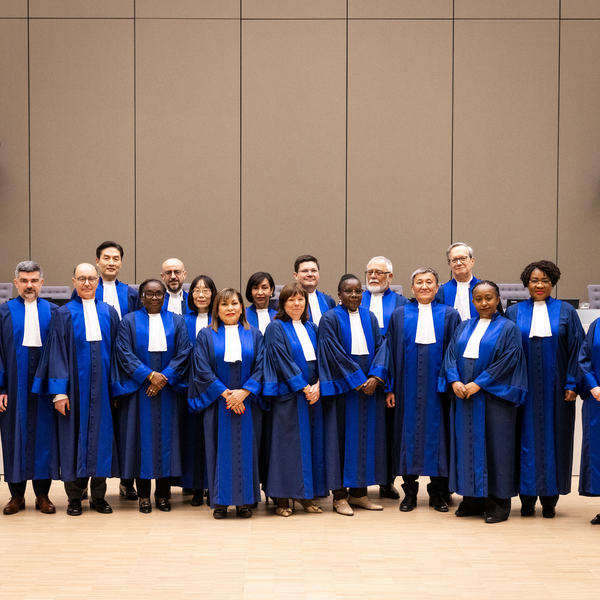Crusading Spanish Judge Sets Sights on Corporate and Environmental Crimes
Baltasar Garzón is pushing the idea that economic and environmental crimes be considered crimes against humanity, akin to torture or genocide.
Famed Spanish judge Baltasar Garzon, known for having put Chilean dictator Augusto Pinochet on trial for genocide in 1998, has reportedly "set his sights on widening the definition of international law to target corporations that carry out economic or environmental crimes," the Guardian reported on Thursday.
Garzon--who has taken on alleged torture and ill-treatment of inmates at the U.S. prison of Guantanamo Bay, crimes committed during the reign of Francisco Franco, and the political persecution of WikiLeaks co-founder Julian Assange--will now turn his focus toward corporate crime.
Next month, according to the Guardian, he and other leading human rights activists, judges, and academics from a dozen countries will come together at a conference in Buenos Aires, Argentina, to push forward the idea that economic and environmental crimes be considered crimes against humanity, akin to torture or genocide.
The Guardian reports:
Actions that could be considered criminal, said Garzon, include those of the so-called vulture funds that undermine countries' debt restructuring, or companies that turn a blind eye to the abusive exploitation of natural resources such as coltan, used in mobile phones, digital cameras and computers.
These actions fit within the definition of crimes against humanity, as they affect certain sectors of the population and trample on human rights, he said. Referring to environmental crimes, he said: "We're seeing how climate change is connected to natural disasters and famines."
Garzon knows he will face an uphill battle. "The problems will come when this initiative affects powerful countries, such as the United States, China or Israel," he said. "But little by little, the path will be paved."
While prosecuting such crimes could be very difficult right now, he told EuroWeekly, "in 10 years, they will be at the center of debate."
An Urgent Message From Our Co-Founder
Dear Common Dreams reader, The U.S. is on a fast track to authoritarianism like nothing I've ever seen. Meanwhile, corporate news outlets are utterly capitulating to Trump, twisting their coverage to avoid drawing his ire while lining up to stuff cash in his pockets. That's why I believe that Common Dreams is doing the best and most consequential reporting that we've ever done. Our small but mighty team is a progressive reporting powerhouse, covering the news every day that the corporate media never will. Our mission has always been simple: To inform. To inspire. And to ignite change for the common good. Now here's the key piece that I want all our readers to understand: None of this would be possible without your financial support. That's not just some fundraising cliche. It's the absolute and literal truth. We don't accept corporate advertising and never will. We don't have a paywall because we don't think people should be blocked from critical news based on their ability to pay. Everything we do is funded by the donations of readers like you. Will you donate now to help power the nonprofit, independent reporting of Common Dreams? Thank you for being a vital member of our community. Together, we can keep independent journalism alive when it’s needed most. - Craig Brown, Co-founder |
Famed Spanish judge Baltasar Garzon, known for having put Chilean dictator Augusto Pinochet on trial for genocide in 1998, has reportedly "set his sights on widening the definition of international law to target corporations that carry out economic or environmental crimes," the Guardian reported on Thursday.
Garzon--who has taken on alleged torture and ill-treatment of inmates at the U.S. prison of Guantanamo Bay, crimes committed during the reign of Francisco Franco, and the political persecution of WikiLeaks co-founder Julian Assange--will now turn his focus toward corporate crime.
Next month, according to the Guardian, he and other leading human rights activists, judges, and academics from a dozen countries will come together at a conference in Buenos Aires, Argentina, to push forward the idea that economic and environmental crimes be considered crimes against humanity, akin to torture or genocide.
The Guardian reports:
Actions that could be considered criminal, said Garzon, include those of the so-called vulture funds that undermine countries' debt restructuring, or companies that turn a blind eye to the abusive exploitation of natural resources such as coltan, used in mobile phones, digital cameras and computers.
These actions fit within the definition of crimes against humanity, as they affect certain sectors of the population and trample on human rights, he said. Referring to environmental crimes, he said: "We're seeing how climate change is connected to natural disasters and famines."
Garzon knows he will face an uphill battle. "The problems will come when this initiative affects powerful countries, such as the United States, China or Israel," he said. "But little by little, the path will be paved."
While prosecuting such crimes could be very difficult right now, he told EuroWeekly, "in 10 years, they will be at the center of debate."
Famed Spanish judge Baltasar Garzon, known for having put Chilean dictator Augusto Pinochet on trial for genocide in 1998, has reportedly "set his sights on widening the definition of international law to target corporations that carry out economic or environmental crimes," the Guardian reported on Thursday.
Garzon--who has taken on alleged torture and ill-treatment of inmates at the U.S. prison of Guantanamo Bay, crimes committed during the reign of Francisco Franco, and the political persecution of WikiLeaks co-founder Julian Assange--will now turn his focus toward corporate crime.
Next month, according to the Guardian, he and other leading human rights activists, judges, and academics from a dozen countries will come together at a conference in Buenos Aires, Argentina, to push forward the idea that economic and environmental crimes be considered crimes against humanity, akin to torture or genocide.
The Guardian reports:
Actions that could be considered criminal, said Garzon, include those of the so-called vulture funds that undermine countries' debt restructuring, or companies that turn a blind eye to the abusive exploitation of natural resources such as coltan, used in mobile phones, digital cameras and computers.
These actions fit within the definition of crimes against humanity, as they affect certain sectors of the population and trample on human rights, he said. Referring to environmental crimes, he said: "We're seeing how climate change is connected to natural disasters and famines."
Garzon knows he will face an uphill battle. "The problems will come when this initiative affects powerful countries, such as the United States, China or Israel," he said. "But little by little, the path will be paved."
While prosecuting such crimes could be very difficult right now, he told EuroWeekly, "in 10 years, they will be at the center of debate."

